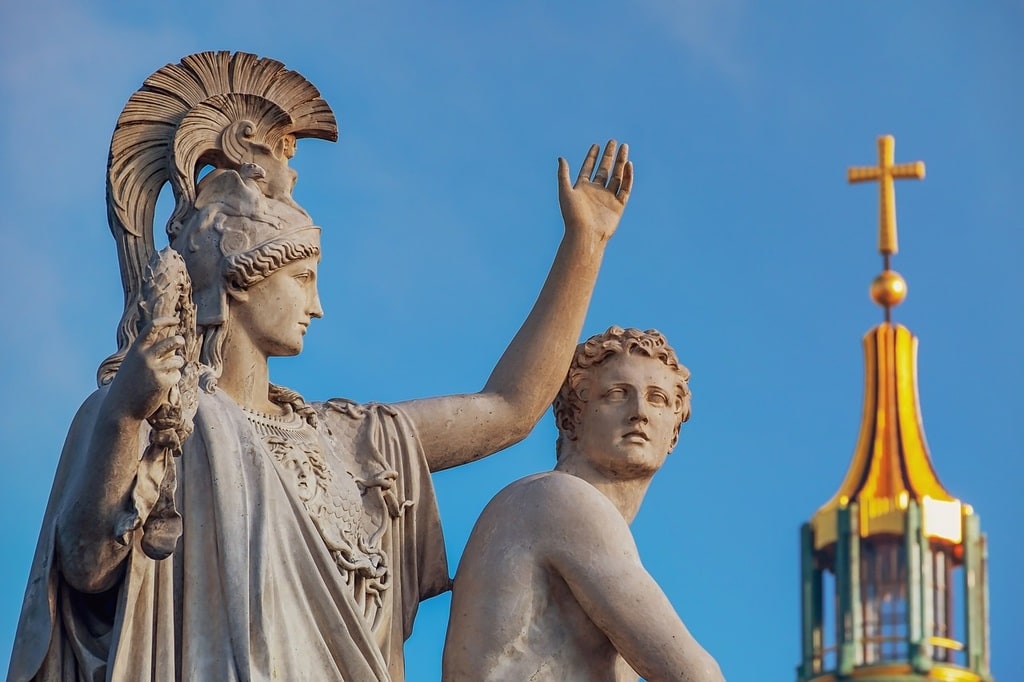Ancient myths and legends have long captivated the human imagination, offering rich narratives that blend history, culture, and morality. These stories, passed down through generations, serve not only as entertainment but also as vehicles for conveying deeper truths about the human experience. From the heroic tales of Greek mythology to the mystical sagas of Norse legends, these narratives continue to inspire and intrigue scholars and enthusiasts alike.
Unveiling the Mysteries of Ancient Myths and Legends
Mythology provides a fascinating window into the values, beliefs, and worldviews of ancient civilizations. Each culture’s myths reflect their environment, history, and social structures. For example, Greek myths often feature themes of heroism and human flaws, embodying the Greeks’ fascination with human potential and imperfection. Meanwhile, the Norse myths emphasize themes of fate and the struggle against inevitable doom, mirroring the harsh and unpredictable climate of Scandinavia.
These stories have survived through oral tradition and written records, preserving a piece of ancient wisdom. They often feature gods and goddesses, supernatural beings, and epic heroes who embark on grand quests. The characters and events in these tales, although fantastical, often symbolize real human concerns and dilemmas.
The Role of Myths in Ancient Societies
In ancient societies, myths served multiple purposes. They were a way to explain natural phenomena, teach moral lessons, and justify social and political systems. For instance, the Egyptian myth of Osiris and Isis explains the cycle of life and death and the flooding of the Nile, which was crucial for agriculture. Similarly, the Greek myth of Demeter and Persephone explains the changing seasons and the agricultural cycle.
Myths also played a significant role in religious practices. Rituals and ceremonies were often based on mythological stories, aiming to appease deities and ensure their favor. These narratives were integrated into daily life, influencing everything from laws to festivals.

Common Themes in Myths and Legends
Despite the diversity of myths across different cultures, many share common themes and motifs. Here are some prevalent themes found in various mythologies:
- Creation myths: stories explaining the origin of the world and humanity.
- Heroic journeys: tales of heroes embarking on quests, facing challenges, and achieving greatness.
- Underworld adventures: myths involving journeys to the realm of the dead and encounters with the afterlife.
- Trickster figures: characters who use cunning and deceit to outsmart others and disrupt the status quo.
- End of the world: narratives predicting apocalyptic events and the ultimate fate of the world.
These themes reveal universal human concerns and the desire to understand our place in the cosmos.
Influence on Modern Culture
Ancient myths and legends continue to influence modern culture in profound ways. Literature, art, and popular media draw heavily from these stories, reimagining them for contemporary audiences. For example, the works of J.R.R. Tolkien and C.S. Lewis are deeply rooted in mythological themes and characters. Movies and TV series, such as “Thor” and “Percy Jackson,” bring ancient myths to life, making them accessible to new generations.
These stories also shape modern psychological and philosophical thought. Carl Jung’s theory of archetypes, for instance, is based on the recurring symbols and themes found in myths. He believed that these archetypes reside in the collective unconscious, influencing human behavior and experiences.
Enduring Lessons from Ancient Myths
Ancient myths and legends offer timeless lessons that remain relevant today. They encourage us to reflect on human nature, ethics, and the mysteries of existence. The story of Prometheus, who defied the gods to bring fire to humanity, highlights the value of knowledge and the consequences of defying authority. The myth of Icarus, who flew too close to the sun, warns against hubris and the dangers of overreaching.
By exploring these stories, we gain insight into the fears, hopes, and dreams of our ancestors. They remind us that, despite the passage of time, certain aspects of the human condition remain unchanged.
The Future of Mythological Studies
As interest in ancient myths and legends continues to grow, so does the field of mythological studies. Researchers and enthusiasts are finding new ways to interpret and understand these stories, using advances in archaeology, anthropology, and literary analysis. Digital technology also allows for the preservation and dissemination of these ancient tales, making them more accessible than ever before.
Engaging with ancient myths and legends not only enriches our understanding of the past but also enhances our appreciation of the present. These stories, with their profound symbolism and enduring themes, continue to resonate with us, offering a bridge between the ancient and the modern world.
